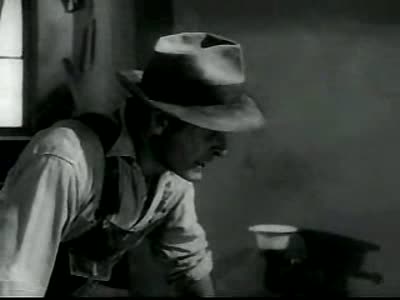Regie:
Robert MulliganDrehbuch:
Horton FooteKamera:
Russell HarlanMusik:
Elmer BernsteinBesetzung:
Gregory Peck, Mary Badham, Phillip Alford, John Megna, Frank Overton, Rosemary Murphy, Ruth White, Brock Peters, Robert Duvall, Paul Fix (mehr)Streaming (5)
Inhalte(1)
Im Süden der USA verteidigt der junge Anwalt Atticus Finch in den 1930er Jahren den afroamerikanischen Farmarbeiter Tom Robinson, der angeklagt ist, eine weiße Frau vergewaltigt zu haben. Die Ereignisse werden zunächst aus der Perspektive der beiden Kinder Scout und Jem erzählt, die mit ihrem Vater, dem verwitweten Anwalt Atticus Finch, in einer Kleinstadt der Südstaaten leben. Ihr behütetes Leben wird zunehmend vom rassistischen Alltag überschattet, als Atticus als Pflichtverteidiger des afroamerikanischen Farmarbeiters Tom Robinson einbestellt wird, der eine junge Frau vergewaltigt haben soll. Immer größer erscheint die Kluft zwischen einer von Vorurteilen geprägten Gesellschaft und der Suche nach Wahrheit und Gerechtigkeit. (arte)
(mehr)Kritiken (5)
I was expecting a classic courtroom drama based on ideas about racism, but what I got was a very original and beautifully retold story from rural America, which through the recollections of a little girl reflects an unpleasant time not only in a depressing but also in a pleasantly exaggerated and purely childlike way. The performances are of course dominated by Peck, but it's also certainly nice to see a young Robert Duvall before he went into the service of the mafia:-) My only criticism would be the slightly odd ending, which didn't avoid patheticism and went too far off the rails in my opinion. Or, on the contrary, immersed itself in it with gusto. :) 85%
()
Ein großartiger, vielleicht etwas langatmiger Film mit einem großartigen Gregory Peck. Zusammen mit Wer den Wind sät und Urteil von Nürnberg ist dieser Film mein persönlicher, ideeller Favorit unter den Filmen, die in Gerichtssälen spielen und nicht langweilen, obwohl Unterhaltung das Letzte ist, woran ich denke, wenn ich sie mir ansehe.
()
Ready, aim, fire. It’s that easy. Like killing a mockingbird. Harper Lee used the title of her celebrated autobiographical novel not only in this sense. It is also a crucial acknowledgement of the protagonist, Jean Louise Finch. Killing a bluejay and killing a mockingbird are not the same thing. The film adaptation of the riveting novel is not so riveting itself. The Southern atmosphere, inhospitable to blacks (and anyone who supports them), is represented mainly by one character, the truly diabolical Bob Ewell (= evil). Of course, the film doesn’t make it clear that “that” is present in the vast majority of people. Of all the themes contained in the book, the filmmakers give priority to the issue of racism, which explains why the instructive episodes with the morphine-addicted Mrs. Dubose were edited out and why there is a complete lack of other characters (Aunt Alexandra) who influence the children’s way of thinking. The long court scene and the subsequent quick ending (the book’s plot covering three years is condensed into roughly one year) create the impression that the film should have been a courtroom drama. Would some added minutes have helped? No, two hours are enough, but in my opinion, what’s essential is not dealt with in that amount of time. The film lacks the dark magic of the adult world that as children we longed to discover, vaguely intuiting what dangers that involves. The title of the feature-length documentary about the film, Fearful Symmetry, captures it exactly. Another film, with a weaker story, stands out in every aspect with its “fearful symmetry”, namely The Night of the Hunter. Appendix: Martin Arnold’s entertaining experiment Passage á l'acte encourages an alternative view on To Kill a Mockingbird and other, similar mainstream films. 75%
()
I enjoyed the notorious Southern hospitality combined with the notorious Southern racism. I also enjoyed Gregory Peck's performance, and to my huge surprise, I didn't even mind the child actors, but... The film felt really archaic; the main character didn't have a scratch on his shiny armor, and I'm not a fan of such virtuous characters. The slow introduction dragged on like a partially frozen snail dowsed in honey, and it seemed much longer than the actual main storyline, while the events in the courtroom felt somewhat rushed. However, Atticus' speech about equality before American justice was hilarious and brought me cynical joy. Despite the criticism, I still think it's a good film because there are lessons to take from it, and I appreciate its poetic elements. My main problem was that my expectations were much higher, and they were not met.
()
A very powerful film that is definitely worth seeing. Court dramas are generally capable of being strong, but here it is also about drama outside the courtroom, about children's drama, about drama about people. This is a film that will get under your skin and show you that justice really has a very diverse form. And sometimes it is simply unfair.
()

